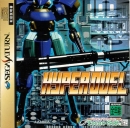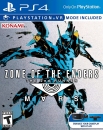Nintendo kinda addressed this in their most recent fiscal quarter briefing. They are emphasizing strengthening relationships with 3rd parties and cite 3rd party software has been more than half of physical Switch software sales since 2020:
They also cite working more closely with 3rd party devs, having cheaper dev kits, working better with them on the development side, and supporting things like Unreal Engine. Bolded are comments direct from Nintendo's financial briefing:
"Thanks to these efforts, our partnerships with software publishers are now stronger than ever."


"As a result, about half of the software units sold since the fiscal year ended March 2021 are titles released by other software publishers. This figure does not include the numerous download-only titles that have been released by software publishers. Sales of both first-party titles and those released by other software publishers continue to achieve high levels of sales."
But that's pretty sizable as far as I can tell, that's more software sold than say the Playstation 3 that had obviously a ton of third party support and likely more than XBox, with 3rd parties getting more than half of the pie for several years now.
When all's said and done, Switch will have pretty close to the same number of software sales as the PS2 (it won't be PS4 level) ... but PS2 level is not freaking bad. If 3rd parties are getting a significant cut of that, that's quite good.
On Switch 2 it has room to grow if devs want to bring some of their bigger IPs (Call of Duty is already guaranteed by contract, likely will see things like Madden NFL and Street Fighter return, possibly even mainline Final Fantasy and Resident Evil). Nintendo will not likely be able to maintain their software release pace either once they transition up to PS4-PS5 style visuals, which means 3rd parties will have more pie to eat. Like I doubt you are getting 4 distinct Legend of Zelda games (BOTW, TOTK, Link's Awakening remake, Echoes of Wisdom) Likely with Switch 2, 3rd parties will have more than 50% of the software split.
Last edited by Soundwave - on 06 November 2024
























































